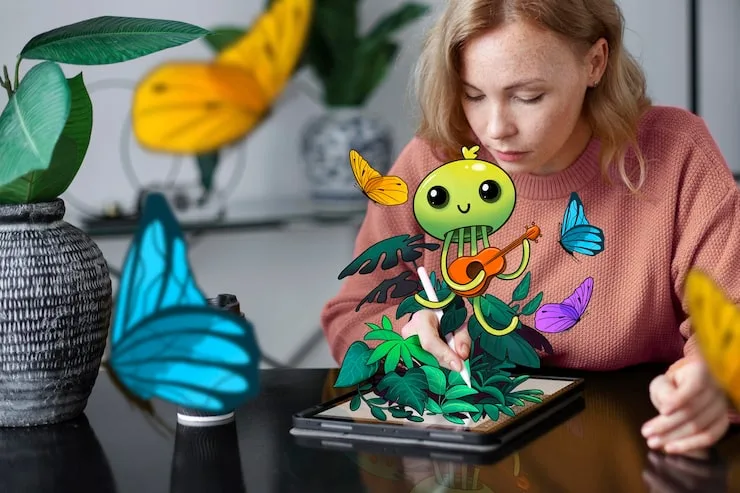The Cultural Exchange: What I Learned about Singapore (and Myself) from My Landlord
When I first arrived in Singapore, the entire process felt like a checklist of impersonal transactions. Secure a visa. Find an apartment. Set up a bank account. My focus was on the logistics, not the people. But the moment I met my landlord, that narrative began to shift. I wasn’t just signing a lease and getting a key; I was entering into a unique cultural exchange, a mentorship of sorts, that would teach me more about this city-state than any guidebook ever could.
My landlord, a middle-aged Singaporean lady I’ll call Auntie Lim, had been renting out a spare room in her HDB flat for years. The hdb flat rented was spotless, the furniture was a little dated but immaculately cared for, and the air was filled with the faint, comforting aroma of home-cooked meals. My initial interaction with her was all business—she explained the rules about utilities, told me which bus to take, and pointed out the location of the nearest hawker centre. But over the next year, my relationship with her blossomed into something far more profound, a window into the soul of Singaporean society that I could have never found on my own.
Lesson 1: The Art of Unspoken Communication
I quickly learned that in Singapore, communication is often a subtle dance of indirect cues and gestures. For a Westerner accustomed to being very direct, this was a massive learning curve. My first week, I accidentally left a few dishes in the sink overnight. The next morning, I found a small, polite note on the counter that said, “Please rinse your dishes after use.” I was mortified and immediately cleaned up. The following week, when I came home, there was a small plate of cut fruit waiting for me. It was Auntie Lim’s way of saying “thank you” for respecting the rule, a beautiful, non-verbal gesture that communicated so much more than a simple word.
This taught me a lot about the Singaporean value of harmony. Auntie Lim was not just my landlord; she was a custodian of the peace within her home. She preferred to solve problems with a gentle nudge rather than a direct confrontation. I learned to pay attention to the little things—the way she would discreetly straighten a misplaced shoe by the door or the small, knowing glance she would give me when I came home a little too late. This unspoken language was a lesson in respect and consideration, a vital skill for anyone trying to navigate life in a multicultural, high-density environment.
Lesson 2: Efficiency and the Value of Time
Singapore’s reputation for efficiency is no exaggeration, and Auntie Lim was a living embodiment of it. When my air-conditioning unit started acting up, I expected a long, drawn-out process. I messaged her, and within an hour, she had already contacted a repairman. He arrived the next day, fixed the unit, and was gone in less than an hour. The entire process was seamless, transparent, and completely stress-free.
This taught me to value efficiency not just as a convenience, but as a form of respect. Auntie Lim respected my time and her own. She didn’t believe in wasting energy on unnecessary phone calls or paperwork. This hyper-efficient approach extended to everything, from how she organized her kitchen to how she planned her day. It was a clear-cut example of the Singaporean philosophy of getting things done quickly and correctly, a lesson that has made me a more organized and productive person in my own life.
Lesson 3: The Deep-Rooted Sense of Community
One of the most surprising things about living in an HDB flat was the palpable sense of community. The void deck (the open space at the ground floor) was not just an empty space; it was a gathering spot for neighbours to chat, a place for children to play, and a venue for community events. While I was just a tenant, Auntie Lim made sure I felt like a part of this community.
She would often introduce me to her neighbours and the friendly store owners at the local market. On special occasions, she would invite me to join in on festive meals with her family. One day, she pointed to a notice board and said, “There is a meeting about a new recycling program. You should go, you live here too.” In that simple statement, I realized that my rental room in Singapore was not just a temporary stop; it was my temporary home, and I was expected to be a part of the community that surrounded it. It was a powerful lesson in collective responsibility and the importance of active participation, a stark contrast to the anonymous, isolated apartment living I had experienced in other cities.
Lesson 4: The Kindness of Strangers (Who Aren’t Strangers Anymore)
Perhaps the most valuable lesson was about the nature of kindness. Auntie Lim’s gestures were never grand. They were simple, everyday acts of kindness that built a genuine bond between us. She would leave a container of her delicious homemade soup for me when she knew I was feeling under the weather. When I came back from a long trip, she would be waiting to check on me, offering a glass of water and asking about my journey. These acts weren’t born out of a legal obligation; they were born out of a genuine human connection.
Through Auntie Lim, I learned that kindness in a new place doesn’t always come in big, obvious forms. It comes in the quiet care of a landlord who treats you like family, in the smile of a neighbor you pass in the corridor, and in the comfort of a home that is shared with generosity.
The experience of renting from Auntie Lim was so much more than a rental agreement. It was an immersion course in a culture I was just beginning to understand. It taught me to be more patient, more observant, and more open to the kindness of others. I didn’t just find a place to live; I found a mentor who showed me what it truly means to be a part of a community in Singapore. And for that, I will be forever grateful.




